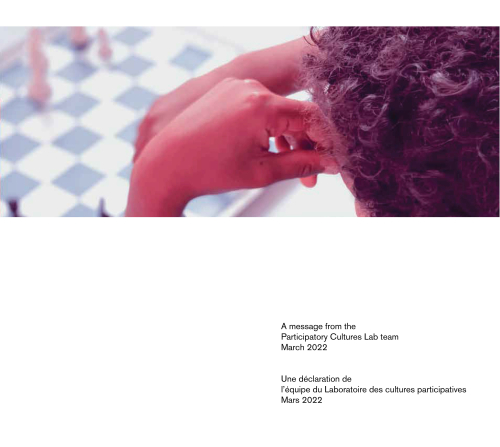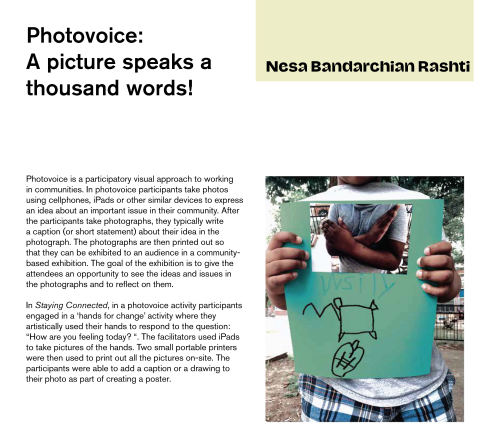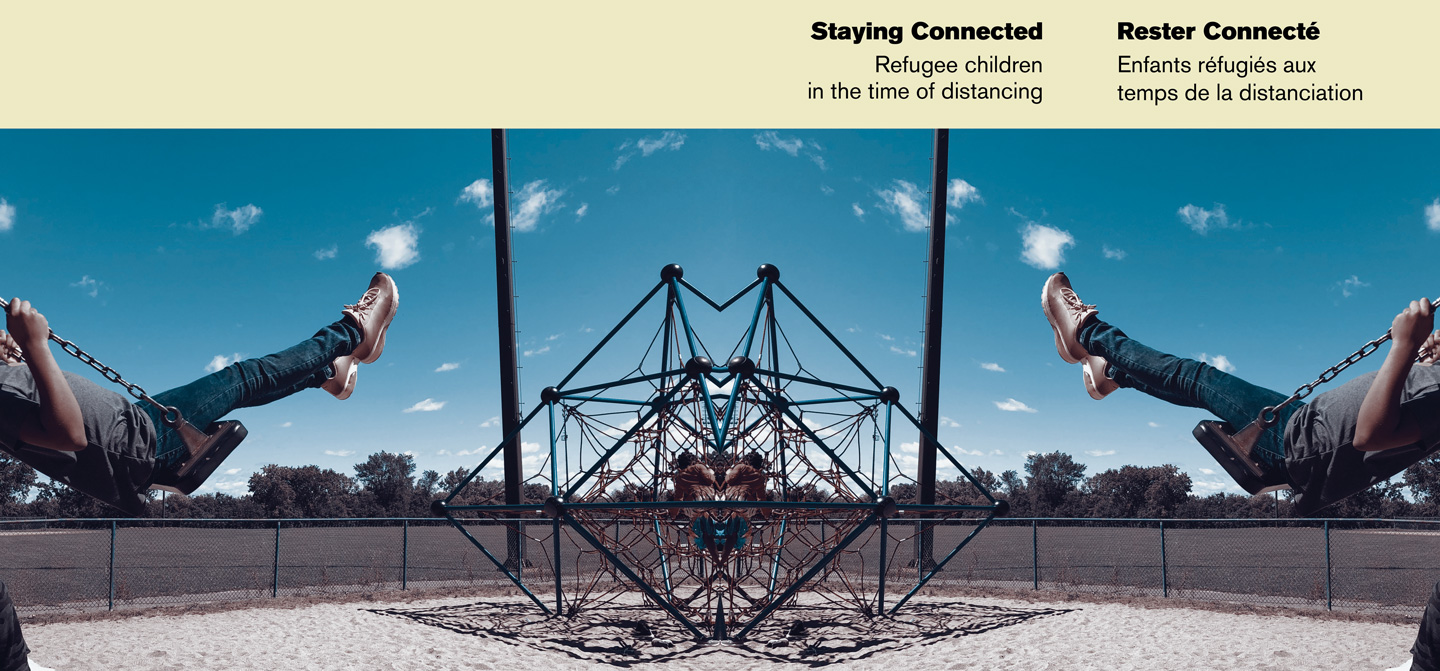Staying Connected comes out of a series of workshops and activities that happened in 2020 and 2021 during the time when the COVID-19 pandemic imposed social distancing and lockdown in Montreal similar to most other cities around the world. To date, the pandemic has deeply affected the daily lives of each and every one of us. Like many of us, children and youth had to adapt themselves to physical distancing, school closures, remote learning, and the absence of social interactions. However, the impact has been more profound on refugee children and youth who often lack access to necessary technologies or connectivity devices. To respond to these issues, the Participatory Cultures Lab and the Institute for Human Development and Well-being in collaboration with Byenvini à Montréal and Maison d’Haïti organized a series of activities to help the children maintain their well-being during a time of stress, anxiety and uncertainty. The McGill team consisting of Dr. Claudia Mitchell, Nesa Bandarchian Rashti, Aron Rosenberg, Darshan Sanju Daryanani, Colette Anton, Dr.Maria Ezcurra, and Dr. Déborah Maia de Lima carefully selected the type of activities to create a space in support of well-being. Similar to Art Connecting in 2019, which provided an opportunity for children to express their emotions and challenges through the arts, over the last two years the workshops provided a space for personal adjustment, cultural adaptation, and community-making to strengthen the children’s social ties and foster their feeling of security and well-being. For example, in a simplified photovoice activity, the children were asked to show how they were feeling by making a shape with their hands. Photovoice is a tool that highlights the use of photography in expressing emotions and feelings.
Given the changing living conditions of the children, expressing one’s feelings is of utmost importance. The small group work activities provided the children an opportunity to build healthy relationships with each other and develop empathy. This was very important since developing empathy helps children build a sense of security and stronger connections with their peers, educators, and their family members. The cellphilming session, where participants used an iPad to create a short film, gave them a chance to use their existing digital skills to address “what would you like to tell grown-ups about the environment?”. This outdoor activity taught children to focus on their feelings about the environment which gave them a sense of mindfulness. When well taught and practiced with children and youth, mindfulness can enhance focus in children, reduce attention problem, and improve social skills. Finally, to spread the holiday cheer in December 2021 the children created greeting cards. Crafting a card involved a variety of different aspect such as cutting paper, drawing and coloring shapes, gluing small decorations, and writing messages, all of which help children’s creativity.

















